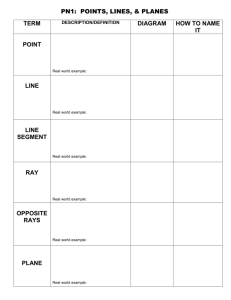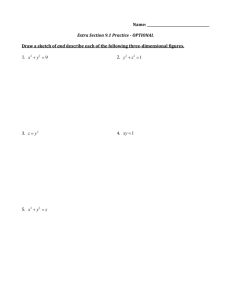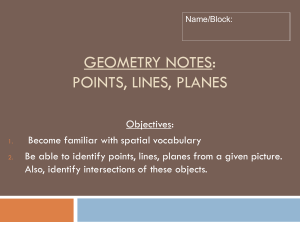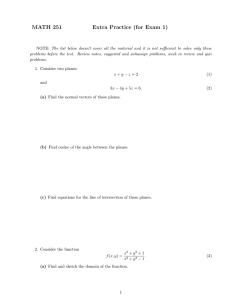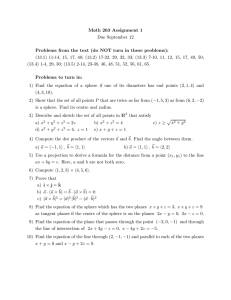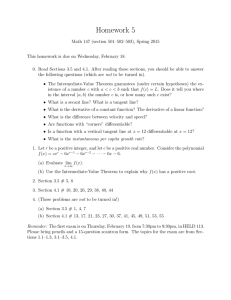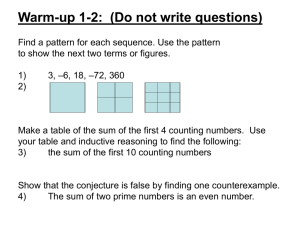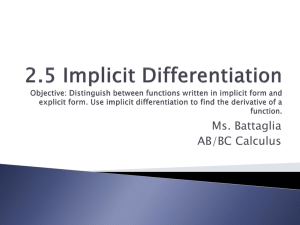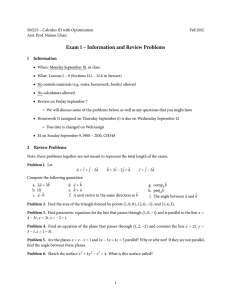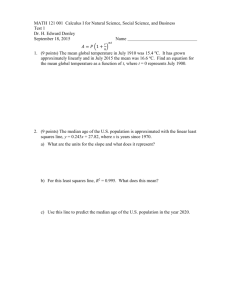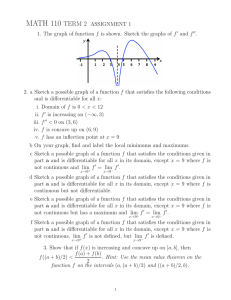Part credit possible. Show all work. ID MATH 251 EXAM 1
advertisement
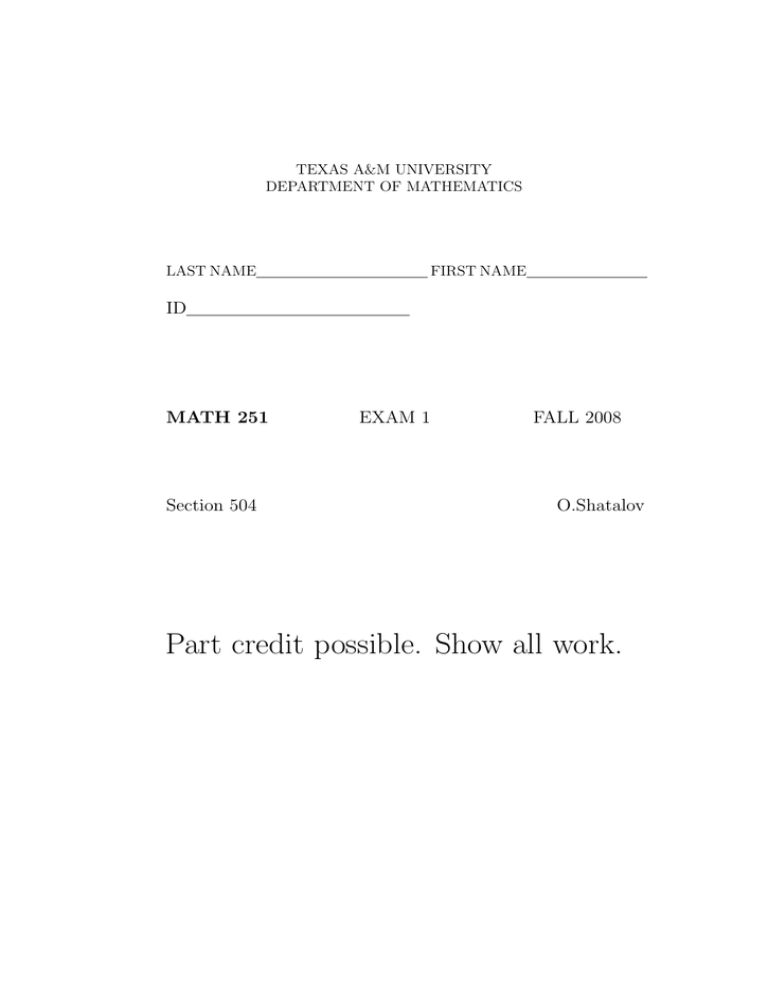
TEXAS A&M UNIVERSITY DEPARTMENT OF MATHEMATICS LAST NAME FIRST NAME ID MATH 251 Section 504 EXAM 1 FALL 2008 O.Shatalov Part credit possible. Show all work. 1. Consider two planes: x+y−z =2 (1) 3x − 4y + 5z = 6. (2) and (a) Find the normal vectors of these planes. (4 points) (b) Find cosine of the angle between the planes. (8 points) (c) Find equations for the line of intersection of these planes. (13 points) 2. Determine whether each of the following limits exists and explain why or why not. If the limit exists, find it. (a) lim (x + y) cos (x,y)→(0,0) 1 x2 + y 2 (10 points) x3 y (b) lim (x,y)→(0,0) x4 + y 4 (10 points) 3. Consider the function z = ln(x − 3y). (3) (a) Find zx (7, 2) and zy (7, 2). (5 points) (b) Show that the function is differentiable at the point (7,2). (5 points) (c) Find the differential of the function at the point (7,2). (5 points) (d) Using linear approximation approximate the value of the function at the point (6.9,2.06). (10 points) 4. Show that y ∂z ∂z −x =0 ∂x ∂y if z = f (x2 + y 2 ). (10 points) 5. Consider the surface z = x2 + y 2 − 2x + 6y + 10. (4) (a) Find an equation of the tangent plane to the given surface at the point (2, 0, 10). (10 points) (b) Classify and sketch the graph of given surface. (10 points) 6. Bonus question +20% Suppose that the equation F (x, y, z) = 0 (5) implicitly defines each of the three variables x, y, z as functions of the other two: z = f (x, y), y = g(x, z), x = h(y, z). If F is differentiable and Fx , Fy , Fz are all nonzero, show that ∂z ∂x ∂y · · = −1. (6) ∂x ∂y ∂z
